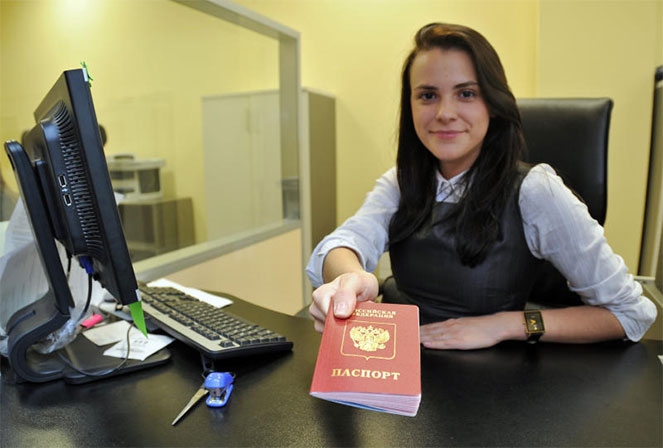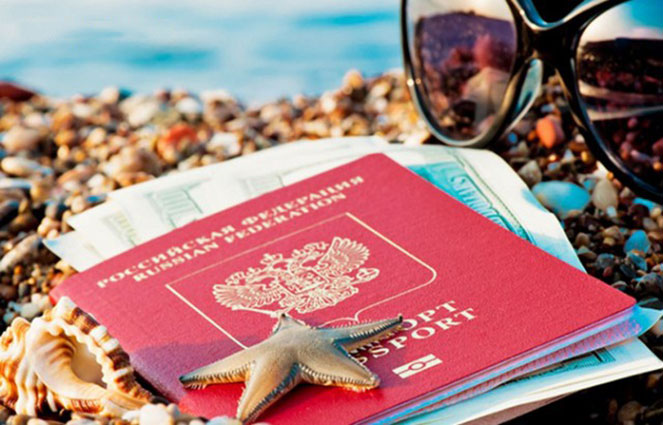As it is written in Latin letters. New transliteration rules in Russian passports
A difficult aspect in filling out questionnaires is always the transliteration of Russian names and surnames on the international passport. In addition to the fact that the Latin alphabet itself has nothing to do with the Russian language, the rules of writing are also changing and being corrected all the time, which sometimes an ordinary person simply cannot keep up with.
The use of the old rules, which were developed and implemented in 2010, assumed the use of transliteration according to Russian and international standards simultaneously. Starting from 2015, all spellings of names, surnames and titles are carried out exclusively on the basis of the international system.
The new transcription in the passport, valid since 2015, meets the standards international organization civil aviation, more precisely - to the document number 9303. The changes, as always, affected inconsistencies in the two languages, namely:
- the letter "c" is now transmitted using the combination ts, and not tc, as it was before;
- vowels "i", "u", "e" should now be written using Latin i instead of y. For example, if earlier the letter "I" was written ya, now it will look like ia;
- the new transliteration rules in the international passport in 2017 affected the letter “y”, respectively. By analogy with the previous rule, the Latin letter i will now transmit it;
- finally received its designation in the Latin alphabet and a solid sign, which now corresponds to the letter duet ie.
To illustrate, here are a few examples:
- Anastasia - Anastasiia;
- Dmitry - Dmitry;
- Valery -
Despite the fact that the new transliteration in the passport came into force in 2015, it is not forbidden to cross the border on the basis of a foreign document in which the old style is used.
Table
Visually, all changes in the spelling of names and surnames can be presented in the table.
| Letter | New transliteration | As it was | Example |
|---|---|---|---|
| AND | A | Abrosimova | |
| B | B | Brut | |
| AT | V | Voronov | |
| G | G | Gudkov | |
| D | D | Dikii | |
| E | E | YE | Epikov |
| Yo | E | Gvozdev | |
| AND | ZH | Zhmut | |
| W | Z | Zagreba | |
| And | I | Ivanov | |
| Y | I | Y | Podgorodnii |
| To | K | Kononov | |
| L | L | Limonov | |
| M | M | Mikhailuk | |
| H | N | Naumov | |
| O | O | Osipov | |
| P | P | Popov | |
| R | R | Rzhevskii | |
| FROM | S | Stepanov | |
| T | T | Trokov | |
| At | U | Uralskii | |
| F | F | Fedorov | |
| X | KH | Kharkovskiy | |
| C | TS | TC | Tsarev |
| H | CH | Chehov | |
| W | SH | Shishkin | |
| SCH | SHCH | Shchegolev | |
| S | Y | tsymbal | |
| b | - | Bulba | |
| Kommersant | IE | - | Podieiaremnyi |
| E | E | Etnov | |
| YU | IU | YU | Liutikov |
| I AM | IA | YA | Yablokov |
If there are still doubts, the translation of the surname into Latin for a passport can be done using one of the many online services.
Translation rules
The introduction of new rules has become a necessary measure due to the use of a single data entry system by all international checkpoints, migration services, airlines and other carriers. Thanks to her, the translation from Russian into Latin for a passport is carried out automatically.
In this regard, the applicant issuing an exit passport is obliged to fill out the application form correctly, and the task of the migration service employees is to correctly enter this data into the system in Cyrillic.
As you know, a mistake in one letter will not play a significant role, but it will be better if your passport contains reliable information, because on its basis a lot of other important documents are filled out. 
Will there be problems
In light of this, the most relevant question remains, can difficulties arise if the transliteration of the Russian alphabet in Latin for a passport is not carried out correctly? After all, many people know that in the case of the Russian spelling of names and surnames, the difference in that very ill-fated one letter sometimes forces you to prove your relationship in court.
Mistakes
The most common mistakes that can be found in the passport are:
- missing letter;
- extra letter;
- spelling error.
Writing a surname in Latin letters in a passport causes the most difficulty when it comes to letters that simply do not exist in the Latin alphabet - Щ, Ъ, Ё, as well as diphthongs “I” [ya], “yu” [yu], “e” [ye].
If the mistake was made by an employee of the migration service, issue new form Passports are due within two hours. It is no longer necessary to present the entire package of papers. All you need is an extra photo. The fee is also not paid. For replacement biometric passport a little more time may be needed.
If spelled differently
It goes without saying that as long as the old foreign passport remains valid, its owner will be able to enter and exit with the data entered in it. But when a new document is received, they will be changed without fail. Transliteration for a passport will look a little different in the previous identity card and in the new one. This, however, should not cause any problems at the border.
Moreover, airlines are more than loyal to this: fly according to booked ticket you can, even if you bought a ticket using an old passport, and you are registering for a flight using a new one. 
How to keep the original spelling of the name
Sometimes circumstances dictate a situation when the transliteration of the name in the passport should remain the same. This is necessary in such cases:
- when it is required that all entries in other documents and in the passport be the same;
- if necessary, leave the name the same as it is written in the papers of other family members.
Our lawyer can advise you free of charge - write a question in the form below:
I think each of us has come across how to write your name correctly on English language. Many people think that it is difficult or will require special knowledge in the field of a foreign language. But it's not! You just need to learn how to correctly transliterate your name by learning a few simple rules and practice writing them. And everything is ready, you can safely transliterate your first name, patronymic, last name and any other proper name.
The spread of English in all spheres of human life
English, being one of the most widely spoken languages in the world, has firmly entered our everyday life. It is the language of business, international economics, politics, tourism and social life, so knowing English is a great advantage in our society. Any document that is presented abroad or needed for a trip to a particular country must be translated into English, and in general, everyone should be able to correctly express Russian names or proper names in Latin. That is why a special system of rules for transliterating Russian names into English was created.
Often people are faced with the problem of how to correctly write their name in English when filling out questionnaires, forms and other documents. Many believe that the name must be translated, and are struggling to find the equivalent of their own name in English. Indeed, some names in these two languages are very similar, but still they are different names. Therefore, they do not need to be translated or searched for an equivalent, you just need to learn the simple rules of transliteration, which are just as important as transcription, and you will be able to present your name in English.
Transliteration is a method of writing the words of one language using the letters of another, that is, replacing Russian letters with Latin ones. There are names that have several spellings, since the same sound can be conveyed by several letters. For example, the name Eugene can be written as Yevgenia, Yevgeniya or Evgenia.
General rules for transliteration
Different ways of transliterating Russian names into English focused on French and German languages. Several methods of transliteration remain today, but English transliteration still remains the most common method.
We present to you general rules transliteration:
In order for Russian words to be pronounced correctly, you need to choose the sound analogue in English as accurately as possible. Some of the letters do not cause any problems, and everything is clear here:
A - A; G - G; HER; Z - Z; K - K; P - P; F - F, etc.
To convey hissing, you need to remember the rules of the English language, especially diphthongs:
W - ZH; H - CH; SH - SH; Shch - SHCH, C - TS (Zhanna Strizh - Zhanna Strizh; Vyacheslav Chistovich - Vyacheslav Chistovich; Shura Shishkina - Shura Shishkina; Schukin, Tatishchev - Shchukin, Tatishchev; Tsaplin, Kuznetsov - Tsaplin, Kuznetsov).
The combination J is transmitted into English by the letter J and combinations DJ and DZH. But all three options are found in the transmission of names and surnames: Jafar, Jafar, Jafar(Jafar); Dzhumayev, Djumayev, Jumayev(Jumaev)
There are also rules for translating especially complex Russian words into English:
- E, Yo, Yu, I, which are transmitted using a combination Y+ E, O, U, A after a vowel and at the beginning of a word;
- E, Yo, Yu, I after a consonant using a combination I + E, O, U, A;
- b and b are not transmitted;
- the apostrophe """ is used to convey the softness or hardness of the previous consonant in a transliteration of names;
- to send Russian X use the combination K+H, K amplifies the sound H(Mikhail Tikhonov - Mikhail Tikhonov);
- Russian combination of KS is better to transmit KS, but not X (Alexey Vaksin- Alexey Vaksin);
- the ending of the IJ can be transmitted IA or IYA but usually Y omitted to make writing easier (Maria, Maria- Maria; Anastasia- Anastasia; Ksenia- Kseniya);
- And transmitted with I or Y, usually used in surnames (Irina Ilyina - Irina Ilyina).
Presentation of patronymic in English
Your name should be given in the following order: first name and last name - Ivan Kozlovsky(Ivan Kozlovsky), if you need to use a patronymic, then it should be placed between the given name and surname Ivan Vasilyevich Kozlovsky(Ivan Vasilyevich Kozlovsky).
Patronymic examples
Aleksandrovich, Borisovich, Dmitriyevich, Fedorovich, Georgiyevich, Igorevich, Konstantinovich, Leonidovich, Maksimovich, Nikolayevich, Olegovich, Pavlovich, Sergeyevich, Timofeyevich, Valeryevich, Yuryevich.
Aleksandrovich, Borisovich, Dmitrievich, Fedorovich, Georgievich, Igorevich, Konstantinovich, Leonidovich, Maksimovich, Nikolaevich, Olegovich, Pavlovich, Sergeevich, Timofeevich, Valerievich, Yurievich.
Importance of correct spelling of proper names in English
A lot of names can be considered international and you can try to find the corresponding equivalents, but still they will be different names. For example, Darina can become Dorothy, Elena - Helen, Ivan - John, Stepan - Steve other.
You should also pay attention to the fact that the selected male or female English name should be used in all documents, since changing just one letter will not change the pronunciation as a whole, and in documents this can lead to a large number of problems and inconveniences. For example, Andrew and Andrey in different documents may mean that these are two different people.
VocabularyFirst name / given name / forename / Christian name- the name given at birth, for example, John, Peter, William.
Middle name (middle name)- second name of a person. It comes between a given name and a surname, such as Alan Charles Jones or Alan C. Jones.
Last name / surname / family name- surname, for example, Smith, Green.
Nickname- a shortened or diminutive form of the name: Peter - Pete; William - Bill, Will; Anne - Annie, Nancy. Nickname is also a substitute for a name (nickname) that is given to a person for some reason (as a description, characteristic, mockingly), such as Big Jim, Chubby, Dusty, Monster, Shadow. Nickname is also an alias used by Internet users for various purposes.
Birth name- name at birth, i.e. the name given to the child at birth.
legal name- an official name that is used for official purposes, such as signing contracts.
Maiden name- the woman's maiden name before marriage.
Married name- surname by marriage, i.e. last name of the married woman.
Patronymic- patronymic.
Pseudonym- Nicknames include pen names, stage names, nicknames, aliases.
Useful phrasesHow do you spell your name, please?- How do you spell your name, please?
How do you spell your first name? How do you spell your (first) name?
What is the full name for Natasha?- What is the full name for Natasha?
What does Johnny stand for?- What is Johnny's full name?
Is your name spelled with one N or double N?- Is your name spelled with one N or two N's?
How do you spell your last name?- How do you spell your last name?
If you are the owner of an unusual name or you are not sure that you can transliterate it yourself, use the help of one of the online transliteration sites, and you will definitely enjoy the sound of your Russian name in English. And our teachers will help you consolidate the material.
Big and friendly family EnglishDom
Online transliteration translator
(translation of Russian letters into English)
In order to translate Russian letters into English, paste the text into the input field and click the button
"In transliteration". In the transliteration window of the translator, a translation of Russian letters into English letters (Russian letters in Latin) will appear.
If your translation is for important purposes, then please note that if the words contain the letters e or ё, then the transliteration translator may not translate them correctly (in terms of the US Department of State Transliteration Rules). In this case, read the text below the window of the online translator. Correct your text.
Transliteration rules
Cyrillic-to-Latin transliteration system used by the US Department of State to transliterate surnames and given names
| Cyrillic | Latin | Cyrillic | Latin | Cyrillic | Latin | ||
|---|---|---|---|---|---|---|---|
| A, a | A | K, k | K | X, x | KH | ||
| B, b | B | L, l | L | C, c | TS | ||
| In, in | V | Mm | M | h, h | CH | ||
| G, g | G | N, n | N | W, w | SH | ||
| D, d | D | Oh oh | O | u, u | SHCH | ||
| Her | E, YE | P, p | P | b | |||
| Yo, e | E, YE | R, r | R | s | Y | ||
| F, f | ZH | With, with | S | b | |||
| W, h | Z | T, t | T | uh, uh | E | ||
| And, and | I | U, u | U | Yu, yu | YU | ||
| y, y | Y | f, f | F | I, I | YA |
- The letter E of the Russian alphabet is transliterated into the Latin alphabet as YE, if it is at the beginning of a word, after vowels and the signs b and b. In all other cases - as E.
For example, Evgeny=Yevgeniy, Anatolyevich=Anatolyevich, Sergeevich=Sergeyevich. - The letter Ё is transliterated as YE if it is at the beginning of a word, after vowels and signs Ъ and Ь. In all other cases - as E.
For example, Yolkin=Yelkin, Planernaya=Planernaya. - The letters Y and Y are transliterated as Y in both cases.
For example, Quick=Bystryy. - The letter C is transliterated as TS. In the same way as the letter combination TS.
For example, Tsarev=Tsarev.
According to the regulation, which entered into force on March 16, 2010, the transliteration rules Cyrillic when writing the surname and name of the owner of the passport. Many citizens of the Russian Federation, when receiving a new passport, are surprised at how much the transliteration of the surname and name has changed compared to the old passport. But this spelling is not a figment of the imagination of the inspector who enters your data into the computer.
The program for issuing a passport is designed in such a way that the inspector enters data only in Russian, and the corresponding computer program makes the translation automatically, strictly in accordance with the relevant rules. On this moment transliteration according to GOST looks like this: A / A, B / B, C / V, G / G, D / D, E / E, F / ZH, Z / Z, I / I, K / K, L / L, M/M, H/N, O/O, P/P, R/R, S/S, T/T, U/U, F/F, X/KH, C/TC, H/CH, W/ SH SH / SHCH, S / Y, E / E, Yu / IU, I / IA. In this case, many names in new passports are written differently than in previous passports - for example, Viktoriia instead of Viktoriya or Iuliia instead of Yuliya .; The spelling of the name and surname sometimes changes dramatically, becoming almost unrecognizable. This new spelling of names and especially surnames creates many problems for Russian citizens. This may be due, for example, to previously issued rights, credit cards, pre-purchased plane or train tickets.
What to do if you want to keep the old transliteration and don't want to bother with a bunch of documents? According to paragraph 78 of this order, it is possible to keep your former surname - just write a statement. Paragraph 78 of the order states that, upon a reasoned written application of a citizen, drawn up in any form and submitted personally with the provision of available documents (passport, residence permit, visa, marriage certificate, education documents, title documents, banking and other documents), the last name and first name of the passport holder are written in Latin letters in accordance with the submitted documents on the basis of the decision of the head of the FMS of Russia (within the competence), the territorial body or division that issues the passport, or the person replacing him.
Sample application: "Statement. I ask, in accordance with paragraph 78 of the Administrative Regulations of the Federal Migration Service for the provision public service on registration and issuance of passports of a citizen Russian Federation certifying the identity of a citizen of the Russian Federation outside the territory of the Russian Federation, and for the performance of the state function of recording them ", when preparing a new form of a foreign passport, keep the transliteration of the spelling of my name in the previous form - full name, since the spelling of the name in this form is used in a significant number of financial and title documents, the change of which will entail significant financial and time costs. In support of the above and reasoned statement about the preservation of the old form of writing the name, I am enclosing copies of the following documents: - list of documents”
Copies of documents must be attached to the application, such as: passport, residence permit, visa, marriage certificate, education documents, old foreign passport, title documents, bank and other documents, if the surname with the previous transliteration was used there. Order of the Federal Migration Service (FMS of Russia) of February 3, 2010 N 26 Moscow "On approval of the Administrative Regulations of the Federal Migration Service for the provision of public services for the issuance and issuance of passports of a citizen of the Russian Federation, proving the identity of a citizen of the Russian Federation outside the territory of the Russian Federation , and for the performance of the state function of accounting for them "
Our experts are ready to help you to issue a passport, as well as advise on any issue that has arisen.
In a foreign passport, both new and old, the surname and name of the holder are always written in Latin letters. When registering all, special attention is paid to writing all personal data. Transliteration in the passport is carried out according to certain rules that may change, so it is worth clarifying the current examples of writing in Latin before submitting a package of documents.
In 2017, the transliteration was updated, but fully complies with international standards.
The last update was exactly 6 years ago.
The procedure for transliterating a surname and name into a passport is carried out in each department of the migration service, and transcription can be carried out not only according to international rules, but also Russian ones. International standards are relevant for the current year. The process itself is carried out automatically using a computer program. All that is required from the applicant is to fill in without blots and errors. Employees of the migration service enter all the information in Cyrillic into the program. This method works in most countries of the world.
![]()
Since 2010, transliteration has undergone many changes, and therefore many are concerned about the difficulties or problems associated with different spellings of personal information in different documents. Often there are situations when a difference of at least one letter can cause a lot of trouble, for example, proceedings in court to prove kinship, etc.
Concerning foreign passports, then the situation is not so serious: the spelling of the name in the old-style document may differ from what is indicated in the biometric.
Most airlines allow you to fly on a ticket that was purchased before you received your biometric passport, even if the new document has different spelling of the data compared to those on the ticket. If the initials on the bank card are written differently than in the new passport, then when the reissue period is reached, the information will be rewritten again.
Innovations
Last year, the changes affected the transliteration of some letters of the alphabet, which is why some names and surnames seem completely unrecognizable and difficult to read. The letter "ё" is now also taken into account, like "e", the solid sign has also become translated. In addition, the combination of some vowels has been changed, “ts” and “y” are indicated differently. More detailed information is shown in the table:
| Designation | Translit | Designation | Translit | Designation | Translit | Changes | ||
| a | a | to | k | X | kh | Letter | Was | It became |
| b | b | l | l | c | ts | c | tc | ts |
| in | v | m | m | h | ch | Vowels | yu, ya | Iu,ya |
| G | g | n | n | sh | sh | Kommersant | did not have | ie |
| d | d | about | o | sch | shch | th | y | i |
| e | e | P | p | b | ie | |||
| yo | e | R | r | s | y | |||
| and | zh | With | s | b | — | |||
| h | z | t | t | uh | e | |||
| and | i | at | u | Yu | iu | |||
| th | i | f | f | I | ia | |||
According to the new rules, in 2017 many surnames and names are written differently, not like in the passports issued earlier: not Sergey, but Sergei, not Sofiya, but Sofiia, etc.
In some cases, it is important to leave the old spelling of the data in order to match the spelling in the documents of other family members or in previously issued important papers. In order to leave the “transliteration” the same and not go through a rather complicated re-issuance procedure, it is enough just to write an appropriate application in accordance with paragraph 78 administrative regulations.
What to do if you want to keep your "former" name
The application, which indicates how to write the first / last name, is filled out completely in free form with the obligatory indication of the reason why the information should look like the desired way. The document is addressed to the head of the local migration department. In order for the application to have administrative force, it is necessary to refer to the 28th paragraph of the order of the Federal Migration Service numbered 211, dated 2014

The following must be attached to the document (where there is an old spelling of personal data):
- Foreign passport (previous);
- An official marriage certificate issued in any other state;
- copy internal passport country;
- Birth certificate (you can even have a child, as the parent's data is indicated);
- Any documents about the education received in Latin;
- A visa that has not yet expired.
All documents issued outside the territory of the native country must be legalized and translated into Russian. By own will it is impossible to change the transliteration rules.


